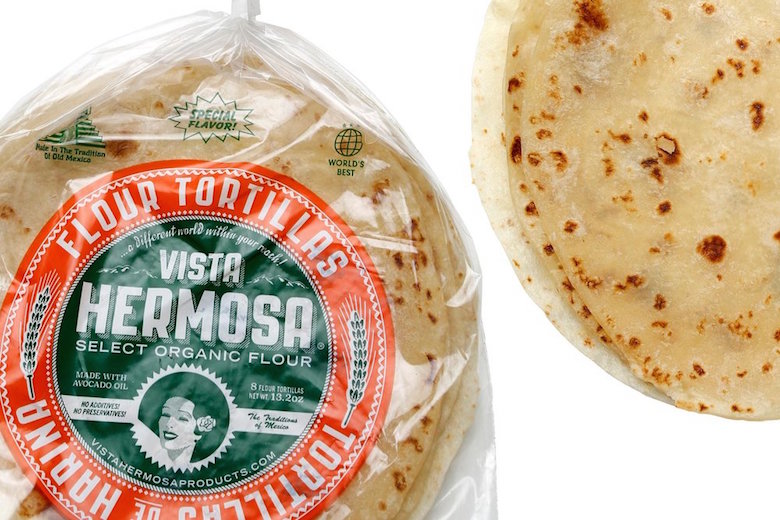
There is a fine line between appropriating a culture and honoring it. Jason Debriere, head of research and development and culinary director for Vista Hermosa, the company that produces my favorite store-bought flour tortillas, gracefully walks that line. We chatted on the phone about how he does it and why these tortillas cost more than others.
What is your background with Mexican food and what was that journey like?
Aw, man. That’s a loaded question. I grew up in California, in San Jose, so inherently by just the demographic of that area there was a lot of third and fourth generation Mexican-Americans. Some of my friends that I grew up next to, their parents had immigrated from Mexico, mostly from northern Mexico. I was exposed to some very traditional Mexican food at an early age. At the time, I didn’t think anything of it; I didn’t think that was going to be my career path as a kid.
Did you have a certain audience in mind when you created the tortillas?
Yes and no. I mean, I think that right now it’s still a premium product; obviously, you purchase them from Whole Foods. So it doesn’t cast a big net when it comes to consumers or doesn’t cast a wide enough [net] in that I think that should hit all the consumers. That is kind of our target. But I do think that it’s exposing a lot of people that would otherwise [not have had that exposure].
In San Diego, where I’m from, you can get a pack for like a dozen for two or three dollars. I know the standard for Mexican food is that it needs to be cheap. But for example, someone like myself, I can only purchase these tortillas every so often because they are a little expensive. Could you break down the cost for me?
Everybody has to make their margin when it comes to this and if we go all the way to the beginning, how we’re sourcing quality ingredients—we’re not certified organic, that would only drive the cost up more to the end user. So we do use organic flour, organic oil. That’s definitely part of our costs. And then as we move down the chart we have to pay our staff, and I pay staff very competitively and above minimum wage. That’s how I justify the higher price at the end of the day. [About] 95 percent of the people that work for both Tacombi and Vista Hermosa are Latinx, so at least we’re supporting that part of the community.
As we grow as a company, we’ll be able to cast a bigger net when it comes to the demographic that can consume these tortillas. I’d love to be able to get them into the bodegas in parts of Queens and other regions that I know most of the population is Mexican, because they would have a much greater appreciation [for them].
Knowing as much as possible about a company needs to be part of being a consumer. A lot of us want to support companies that are doing good for marginalized communities of color.
Yeah. I mean it’s something that I grapple with a lot and I don’t know what it’s like to walk through this world as a person of color. You know, I check all the boxes for someone that shouldn’t have any issues with walking through life in this country. I came from a fairly affluent family. I went to college. I did all that. So for me to be able to in some way, shape or form touch somebody else’s life [and help] make it better for them, is just the pinnacle of what I’m trying to do.
Are people usually surprised to know that you’re not Mexican and making a really delicious tortillas? What’s that like?
I guess that’s kind of weird. I used to think about it a lot more than I [do]. My sister still lives in California; she’s actually in the restaurant industry too, and people would ask her like, “Oh, why is your brother cooking Mexican food? He’s not Mexican.” People asked me that a lot and I said, well, you know, there’s a million restaurants in this country. I worked for an Italian Mediterranean restaurant for a long time—I’m not Italian or Mediterranean—I just liked the flavors in that food. So I had to say, I found a cuisine that I really enjoy, [that] really speaks to me, and I just try to honor the tradition. And I’m not taking credit for inventing the tortilla, certainly not the corn tortilla, I’m just trying to honor it.
This interview has been edited for clarity and length.



